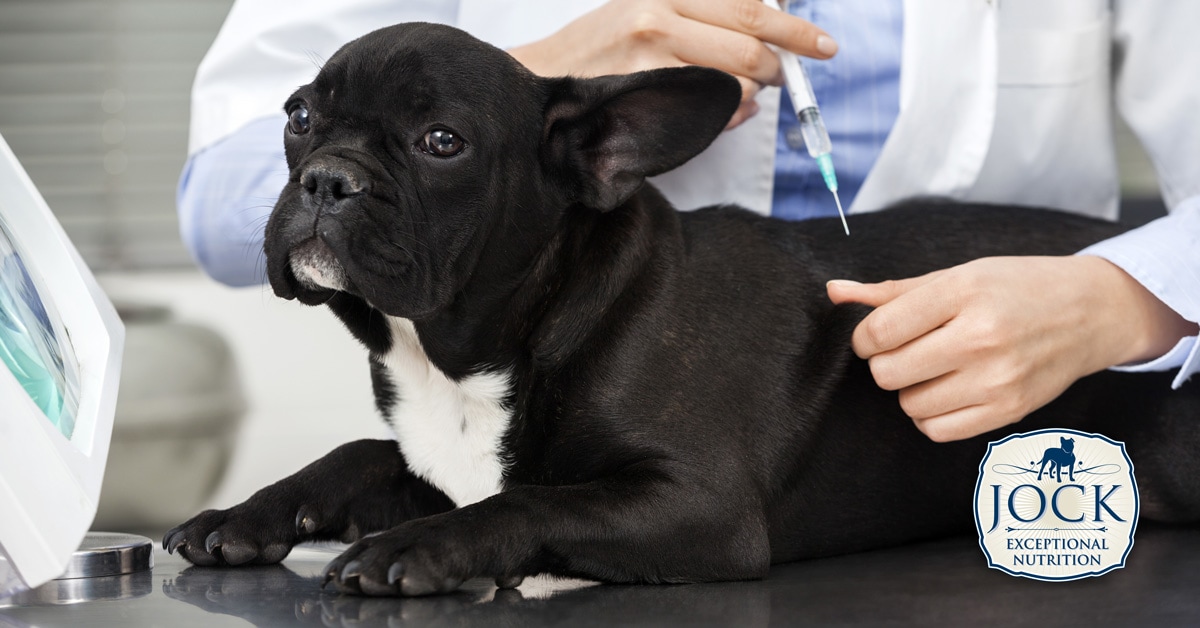Yes, dogs also suffer from diabetes, and no, if your dog has it, you can’t just ignore it and hope that it will go away. We had a quick chat to our in-house vet, Louis Boag, to find out what to look out for and how to ensure that your diabetic dog can live a normal, happy life.
Diabetes 101
What exactly is diabetes? Well, let’s break it down really simply. When a dog or human eats, the food is broken down into various smaller components — one of the components being glucose (a form of sugar). Glucose is absorbed into the blood but needs to enter cells to be stored and converted into energy.
In order to get into cells, glucose needs the help of insulin, a hormone secreted by the pancreas. When no insulin is produced by the pancreas or the cells do not react to insulin, the glucose remains in the bloodstream, but cannot be converted into energy. This over-presence of glucose or sugar in the bloodstream is known as high blood sugar or hyperglycemia. Prolonged high blood sugar is called diabetes mellitus, or simply diabetes.
Type 1 and type 2
Like humans, dogs also suffer from two types of diabetes. Type 1 diabetes is when your pancreas simply does not produce insulin. This disease normally has its onset quite early in a dog’s life and is more common in dogs than type 2, especially in some breeds like Golden Retrievers, Schnauzers, Dachshunds, Australian Shepherds, Keeshonds and Samoyeds. Type 1 diabetes is not curable but a dog with type 1 diabetes can live a normal, happy life as long as it gets insulin injections after every meal for the rest of their lives.
Type 2 diabetes is when insulin is produced, but not enough, or when the cells don’t respond to insulin the way they should. Type 2 diabetes is actually more common in cats, but certain dogs are prone to suffer from this type of diabetes later in their life — normally from 6 years onwards and are mostly caused by obesity and a lack of exercise. The good news is that type 2 diabetes can be treated and often cured through the correct diet, weight loss and adequate exercise.
How do I know my dog has diabetes?
The onset of diabetes (especially type 2) can be quite slow, so it’s important to note changes in your dog over time. If your pooch can’t seem to drink enough water, loses weight even though it seems to be eating more, or urinates like crazy, diabetes might be the cause.
Diabetes can also cause lethargy and dehydration, which in turn can cause urinary tract infection. If your dog seems to experience pain when relieving itself and licks its genitals more than usual, you should be concerned. In some cases, diabetes might also lead to cataracts in the eyes. Another common symptom is sweet-smelling urine or a fruity breath.
However, the only person that can diagnose your dog with diabetes is a qualified veterinarian. He or she will listen to what you have to say about any warning signs you may have noted, but will also perform blood tests and collect a urine sample.
Can my dog live with diabetes?
Of course, it can — provided that it receives the right treatment. In serious cases, your dog might have to be hospitalised to stabilise its condition. In others, some oral medication and a specialised diet will be introduced to stabilise glucose levels in the blood. The owners of dogs with diet will be introduced to stabilise glucose levels in the blood. The owners of dogs with type 1 diabetes will be educated on how to do home insulin injections after every meal, while type 2 diabetic dogs will often respond well to a healthier eating plan and increased exercise. It’s a fact that overweight dogs are more at risk to develop a range of health risks, including diabetes.
Unfortunately, the global occurrence of obesity in dogs is on the increase, with owners often not aware of the obesity their cute four-legged friends are suffering from. If you suspect your dog might be suffering from obesity, it’s always a good idea to read up about it.
However, with a healthy lifestyle that includes daily exercise and a nutritional, balanced diet that contains the right amount of protein, you will not only decrease the risk of your dog developing diabetes, you will also greatly improve your dog’s quality of life, allowing him or her to be his happy, tail-wagging self.

